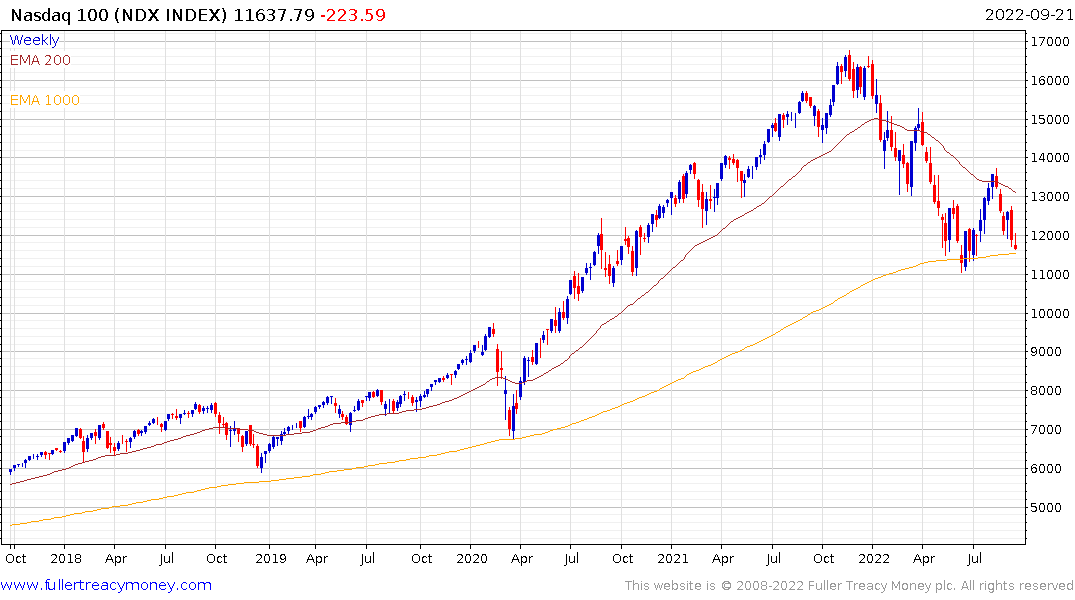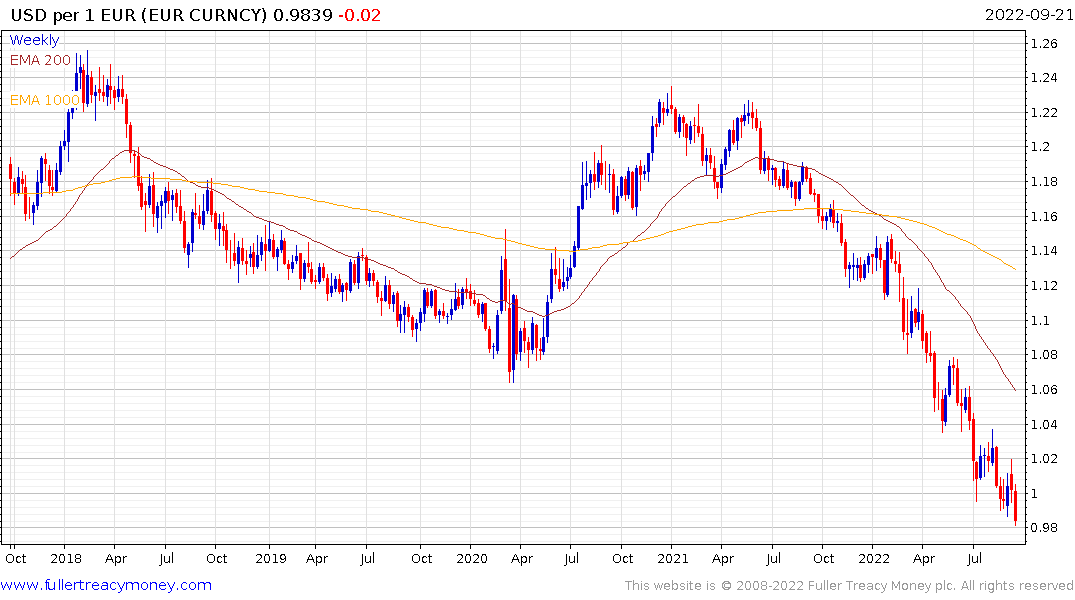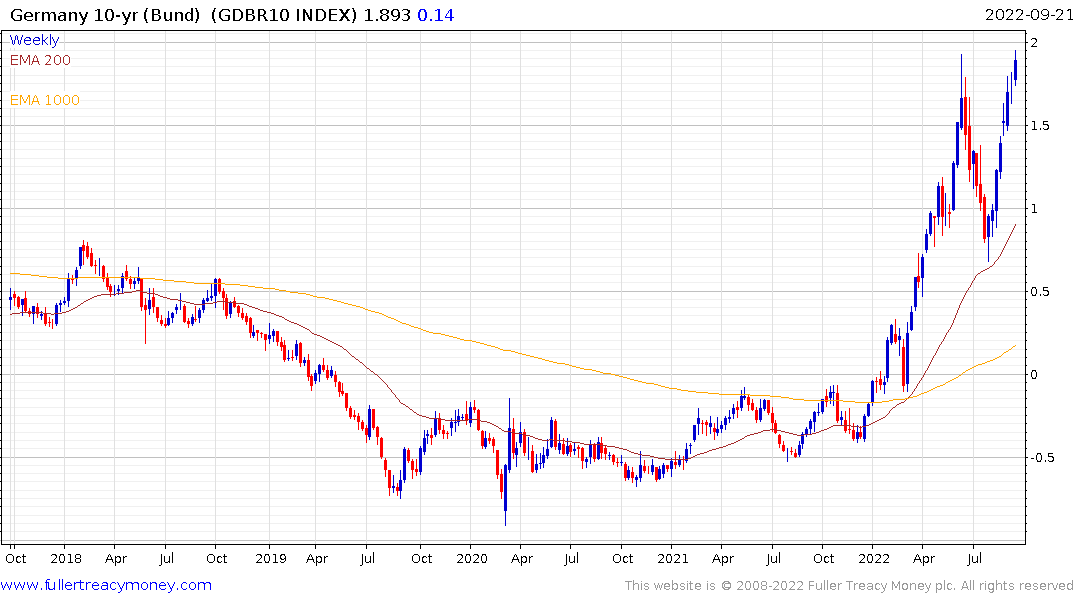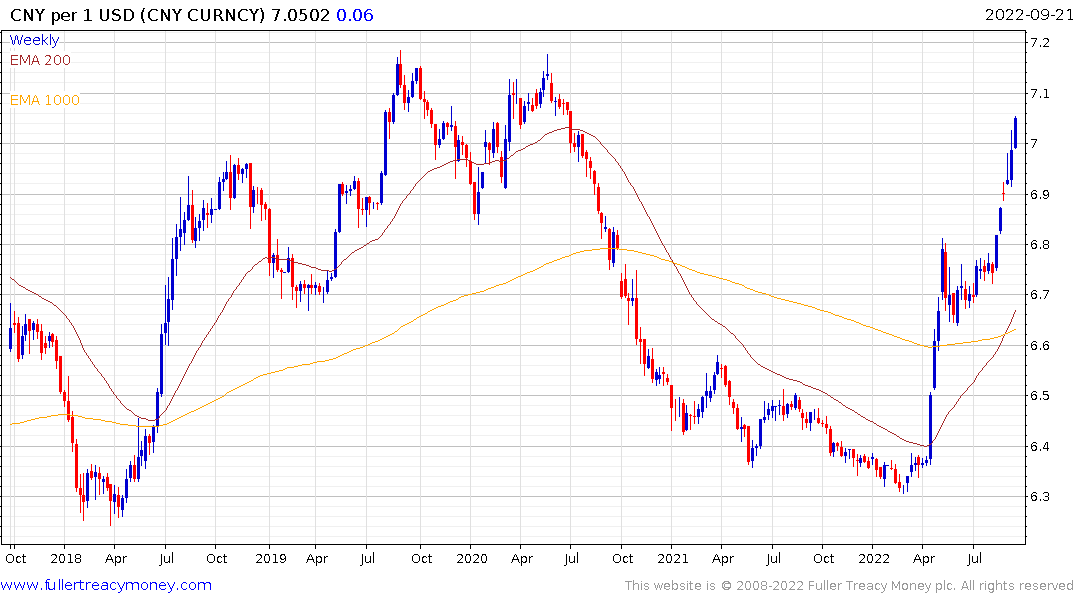Unspoken Rules
I have been thinking a lot about the aspects of the market we all tend to take for granted. The types of conclusions we have been conditioned to draw, because that is always how markets work. It strikes me as a big question because we should be asking if these market norms are the result of the decades-long process of disinflation or are they rules that transfer between big secular themes.
The basic working hypothesis of the markets is the Fed will rescue its stock market. The EU will rescue its bond market and China will rescue its property market. The rationale for all three is the same. That’s what they have always done because those are the biggest asset classes owned by consumers in all three jurisdictions.
At present all three of these asset classes are under some form of duress. There are also clear doubts about the willingness of the respective central banks to provide the assistance necessary to support prices which are elevated by historical standards.
For the Fed, inflation has not been this problematic in 40 years, so it is reasonable to assume that the playbook of the last 30 years is not particularly helpful. Nevertheless, the buy the dip mentality remains strong and stocks rebounded today on the assumption most of the interest rate hikes have already occurred.

The Nasdaq-100 bounced from the region of the 1000-day MA on successive occasions over the last 13 years because investors bet the Fed would provide assistance. This time around there is a substantial lag in supplying assistance.
In a secular bull market buying the dip always works. When it stops working the secular trend is over. That’s why the Fed’s willingness to cause a recession, to kill demand and get inflation under control, is such a hot button topic.
Russia’s invasion of Ukraine is a gift for the EU’s chances of cohesion. However, cohesion is not cheap. That’s especially true as the energy crisis will lend further fuel to nationalist parties. Italy’s election on Sunday, with the Fratelli d’Italia (Brothers of Italy) gaining in the polls will be another example of the need for continued spending to placate restive populations. The kind of fiscal austerity that supported the bond market a decade ago is not going to be accepted today.


The Euro continues to trend lower and Bund yields are overextended but trending higher.
China’s entire local/regional government apparatus relies on land sales. At the same time the leverage in the property sector has been problematic for a long time. From that perspective the government is in a tight position. There are risks to both supporting and withdrawing support from the property sector.
 There is evidence of new bond issuance programs for property developers so that is where the clearest global evidence of new liquidity resides. However, China is very sensitive to the risk to continuity of rule if a bubble develops and then pops. That suggests any assistance will be only enough to forestall a collapse. The go-go days of property speculation appear to be in the past.
There is evidence of new bond issuance programs for property developers so that is where the clearest global evidence of new liquidity resides. However, China is very sensitive to the risk to continuity of rule if a bubble develops and then pops. That suggests any assistance will be only enough to forestall a collapse. The go-go days of property speculation appear to be in the past.


